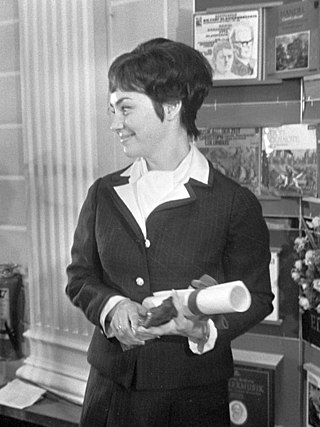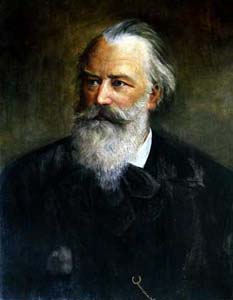Related Research Articles

Karl Amadeus Hartmann was a German composer. Sometimes described as the greatest German symphonist of the 20th century, he is now largely overlooked, particularly in English-speaking countries.

Dietrich Fischer-Dieskau was a German lyric baritone and conductor of classical music. One of the most famous Lieder performers of the post-war period, he is best known as a singer of Franz Schubert's Lieder, particularly "Winterreise" of which his recordings with accompanists Gerald Moore and Jörg Demus are still critically acclaimed half a century after their release.

Walter Berry was an Austrian lyric bass-baritone who enjoyed a prominent career in opera. He has been cited as one of several exemplary operatic bass-baritones of his era.
Karl Ristenpart was a German conductor.

Edith Mathis is a Swiss soprano and a leading exponent of the works of Wolfgang Amadeus Mozart worldwide. She is known for parts in Mozart operas, but also took part in premieres of operas such as Henze's Der junge Lord.

Lear is an opera in two parts with music by the German composer Aribert Reimann, and a libretto by Claus H. Henneberg, based on Shakespeare's tragedy King Lear.
"Prometheus", D. 674, is an intensely dramatic art song composed by Franz Schubert in October 1819 to a poem of the same name by Johann Wolfgang von Goethe.
Karl (Rudolf) Engel was a Swiss pianist.
The First Symphony of the German composer Karl Amadeus Hartmann was completed in 1955.
Rudi Spring is a German composer of classical music, pianist and academic. He is known for vocal compositions on texts by poets and his own, and for chamber music such as his three Chamber Symphonies.

Enoch Arden, Op. 38, TrV. 181, is a melodrama for narrator and piano, written in 1897 by Richard Strauss setting a German translation of the 1864 poem of the same name by Alfred, Lord Tennyson.
Der Sturm is a German-language opera in three acts and an epilogue by the Swiss composer Frank Martin to a libretto based on the Schlegel/Tieck German translation of Shakespeare's The Tempest.

Vier ernste Gesänge, Op. 121, is a cycle of four songs for bass and piano by Johannes Brahms. As in his Ein deutsches Requiem, the texts are compiled from the Luther Bible. Three songs deal with death and the transience of life, while the fourth has an outlook of faith, hope and charity. Brahms composed the work in Vienna in 1896 and dedicated it to Max Klinger. The songs were premiered there in the presence of the composer by baritone Anton Sistermans and pianist Coenraad V. Bos. They have been recorded often by both female and male singers.
Italienisches Liederbuch is a collection of 46 Lieder by Hugo Wolf (1860–1903). The first 22 songs were composed between September 1890 and December 1891, and published in 1892. The other 24 songs were composed between March and August 1896, and published the same year. The time lag between the two volumes was caused by Wolf's long-proposed opera, Der Corregidor (1895), which might have been inspired by his personal love triangle with his friend’s wife Melanie Köchert. The 46 lyrics of the songs were taken from an anthology of Italian poems by Paul Heyse (1830–1914), translated into German and published with the title of Italienisches Liederbuch in 1860. Despite Heyse’s diverse poetic selections, Wolf preferred the rispetto, a short Italian verse usually consisting of eight lines of ten or eleven syllables each, as a result of which the songs are short.

Cantata misericordium, op. 69, is a 1963 musical composition by British composer Benjamin Britten. Its single movement is based on the parable of the Good Samaritan and was composed for the centenary of the Red Cross.
Reinhard Peters was a German operatic conductor, violinist and an academic teacher at the Folkwangschule Essen. He was the Generalmusikdirektor for the opera companies Deutsche Oper am Rhein, Theater Münster and Deutsche Oper Berlin. He premiered music in opera and concert, such as Giselher Klebe's Die tödlichen Wünsche, Aribert Reimann's Melusine, Nicolas Nabokov's Love's Labour's Lost, and Wilhelm Killmayer's song cycle Tre Canti di Leopardi.
Les Espaces du sommeil is a work for baritone and orchestra set to a poem of Robert Desnos by the Polish composer Witold Lutosławski. It is in one movement, with a three-section scheme but lacking clearly marked caesuras, about which Lutosławski stated: "Les Espaces is neither a song nor a set of songs, but a symphonic poem with a baritone solo."
Stefan Soltész was a Hungarian-born Austrian conductor. Trained in Vienna, from 1997 to 2013 he was artistic director of the Aalto Theatre and Generalmusikdirektor in Essen, leading the opera house to international recognition.
Martin Wistinghausen is a German composer and bass singer.
Wolf-Eberhard Georg Felix von Lewinski was a German music and theatre critic. He studied violin, piano, trombone, conducting, theatre and opera direction, but turned to musical criticism early. He was chief critic for papers in the Rhein Main area, and worked for several newspapers and broadcasters. He wrote biographies of singers such as Dietrich Fischer-Dieskau and Brigitte Fassbaender, and created television portraits of pianists such as Claudio Arrau and Wilhelm Kempff. He was also an academic lecturer of musical criticism.
References
Footnotes
Bibliography
- Celia A. Sgroi; Monika Wolf (2001). "Classical Music - Andante - Dietrich Fischer-Dieskau". Archived from the original on 21 August 2008. Retrieved 29 December 2012.
- "The Schott Music Shop - Shop - Karl Amadeus Hartmann - Gesangsszene" . Retrieved 29 December 2012.
- Anne Ozorio (27 September 2008). "LPO/Jurowski @ Royal Festival Hall, London - Concert Review". Archived from the original on 2012-10-03. Retrieved 29 December 2012.